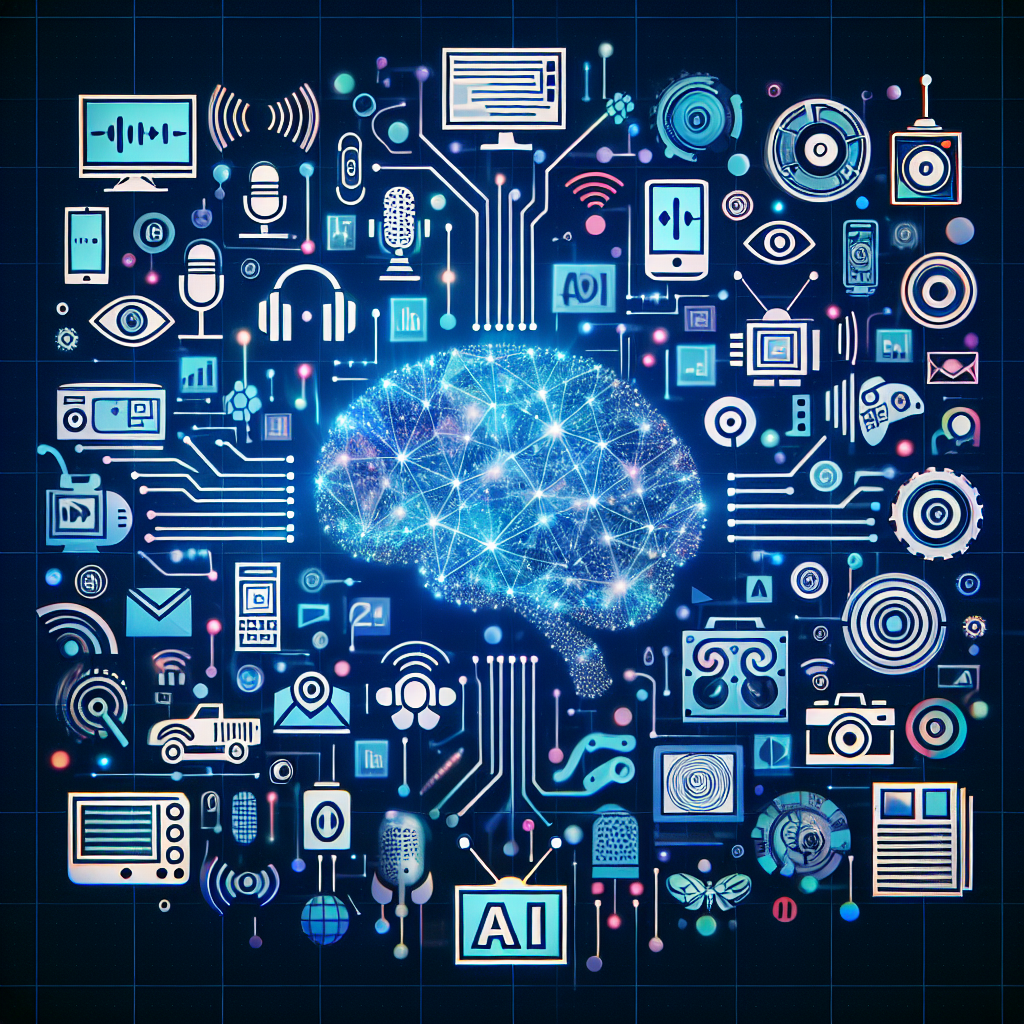In today’s digital age, artificial intelligence (AI) is revolutionizing the media industry in unprecedented ways. From personalized content recommendations to automated content creation, AI is reshaping the way we consume and interact with media. In this article, we will explore how AI is shaping the future of media and the implications it has for both content creators and consumers.
AI in Content Creation
One of the most significant ways AI is impacting the media industry is through content creation. AI algorithms can now generate written articles, videos, and even music with remarkable accuracy and efficiency. This has the potential to revolutionize the way content is produced, making it faster and more cost-effective.
For example, news organizations are using AI to write basic news articles based on data and information provided. This frees up journalists to focus on more in-depth and investigative reporting, while AI handles the routine tasks of writing basic news updates.
In the entertainment industry, AI is being used to create music and even movies. AI algorithms can analyze vast amounts of data to identify patterns and trends in popular music or movies, allowing creators to tailor their content to audience preferences.
AI in Content Recommendation
AI is also playing a significant role in content recommendation. Platforms like Netflix and Spotify use AI algorithms to analyze user preferences and behavior to recommend personalized content. This not only enhances the user experience but also helps content creators reach their target audience more effectively.
For example, Netflix analyzes viewing history, ratings, and other data points to recommend movies and TV shows that users are likely to enjoy. This not only keeps users engaged but also helps Netflix retain subscribers and increase revenue.
AI in Advertising
AI is also transforming the advertising industry. AI algorithms can analyze consumer behavior and preferences to deliver targeted ads that are more likely to resonate with the audience. This not only improves the effectiveness of advertising campaigns but also reduces ad spend by targeting only those users who are most likely to convert.
For example, Facebook uses AI to analyze user data and behavior to deliver targeted ads based on interests, demographics, and other factors. This allows advertisers to reach a highly specific audience, increasing the likelihood of conversion.
AI in Journalism
AI is also being used in journalism to analyze data, identify trends, and even write news articles. This has the potential to improve the speed and accuracy of reporting, as well as uncovering stories that may have gone unnoticed by human journalists.
For example, The Washington Post uses an AI-powered tool called Heliograf to write basic news articles based on data and information provided. This frees up journalists to focus on more in-depth and investigative reporting, while AI handles the routine tasks of writing basic news updates.
FAQs
Q: Will AI replace human journalists?
A: While AI can automate certain tasks in journalism, such as writing basic news articles, it is unlikely to replace human journalists entirely. Human journalists bring creativity, critical thinking, and empathy to their reporting, qualities that AI currently lacks.
Q: How is AI impacting the job market in the media industry?
A: AI is likely to automate certain tasks in the media industry, such as content creation and data analysis, which could lead to job loss in some areas. However, AI also presents new opportunities for innovation and growth, creating new roles and skillsets for workers to adapt to.
Q: Is AI bias-free in content recommendation?
A: AI algorithms can be biased if they are trained on biased data. It is essential for companies to ensure that AI algorithms are trained on diverse and unbiased data to avoid perpetuating stereotypes or discrimination in content recommendation.
In conclusion, AI is shaping the future of media in profound ways, from content creation to recommendation and advertising. While AI offers tremendous opportunities for innovation and efficiency, it also raises important ethical questions around bias, privacy, and job displacement. As AI continues to evolve, it is crucial for content creators, consumers, and policymakers to engage in thoughtful dialogue and collaboration to ensure that AI is used responsibly and ethically in the media industry.

